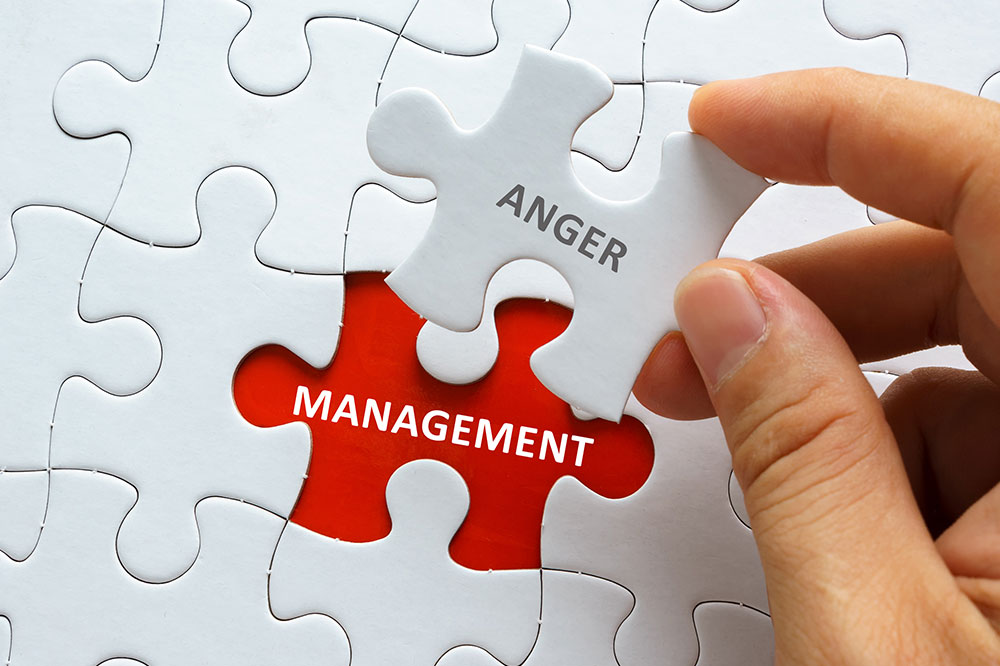
7 simple steps for better anger management
Many triggers are known to influence one’s change in temperament, which is why getting angry is such a common natural reaction. And having some level of control over this emotional response can avoid unpleasant consequences. Using tried and tested management techniques, one can achieve a degree of self-control over their bouts of anger. From relaxation tools to healing therapeutic solutions, here are sevens simple ways to get hot-headed temper under control.
Getting some “me” time
Often, there may be someone or something in a person’s immediate surrounding that is the root cause of their anger or anxiety. A simple solution to try here is distancing oneself from such triggers. For example, feeling fatigued and stressed is natural after a full day of work, be it from home or office. On such days, even trivial things like slightly high TV volume, having a loud conversation, or kids running around the house can be frustrating. The best practice here is to give yourself some “me” time to calm down and establish a ground rule to not be disturbed for a short duration.
Learning to detach
Of course, this tip is much easier said than done, but this practice makes for surprisingly effective anger management. If the source of frustration, irritation, and even hatred is the action or reaction of a known person, one may lose their calm at the risk of feeling betrayed. But forgiving that person and overlooking their transgressions often lead to a healthy dialogue. Taking the first step towards resolving issues will only be beneficial in the long run. Finding mutual ground is virtually impossible if one continues to hold a grudge.
Coping with humor
Anything that lightens up one’s mood can definitely help with anger management. Studies have revealed people who use humor as a coping mechanism are better at controlling their temper and avoiding outbursts. If things seem like they might get out of hand, one can try using humor as a distraction. With practice, this technique will ensure keeping priorities in perspective, smoothing over differences, and even finding innovative solutions to problems. But remember, laugh with the person in conflict and at not at them.
Practice mindfulness
In the long run, practicing mindfulness techniques like meditation can certainly help gain better control over physical and mental emotions. Simple exercises like deep breathing and physical tension release will help ease the stress and relax. Deep breathing improves blood circulation and reduces the risk of high blood pressure, which is one of the most common triggers of anger. Stiffening certain parts of the body for a few seconds individually and letting go is another unique muscle control technique to explore for anger management.
Talk to a friend or close family member
A best friend or a close family member with whom one shares a healthy relationship can certainly have a calming effect that helps with anger management. But note that there is a difference between just venting out and expressing about the things that trigger anger issues. One may not know that they can come across as someone who only seems to make complaints about life. Venting out provides only temporary relief and may come at the cost of maintaining a healthy relationship. But expressing one’s discomfort while keeping an open mind can be much more beneficial in identifying the root cause of the problem and figuring out constructive solutions.
Exploring avenues that can be calming
The simple act of reading a book, listening to music, or even taking a long hot shower can be more calming than imagined. One must explore habits that can both distract the mind from anger issues and avoid triggers from clouding sound judgement. Often, not having time or getting enough opportunities to do what the heart desires can be frustrating after prolonged periods. Spending time on a favorite activity provides a sense of satisfaction and helps the body produce more endorphins (also called happy hormones). Even if the anger triggers persist, the increased flow of endorphins will allow the mind to process this anger and not let it become overwhelming difficult to control.
Kepping the basics in mind
One must mindfully manage stress and promote overall health by getting enough rest, eating nutritious food, and regularly exercising. Avoiding intoxicants can do wonders for one’s blood pressure and heart functions. Anger management takes time but is possible to achieve with consistency and dedication.




